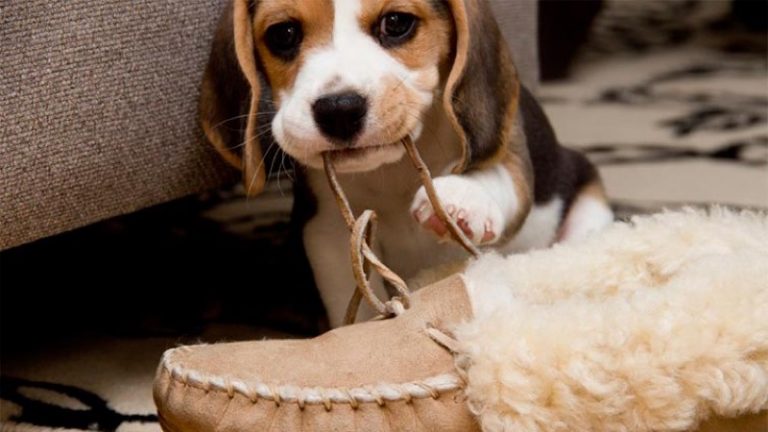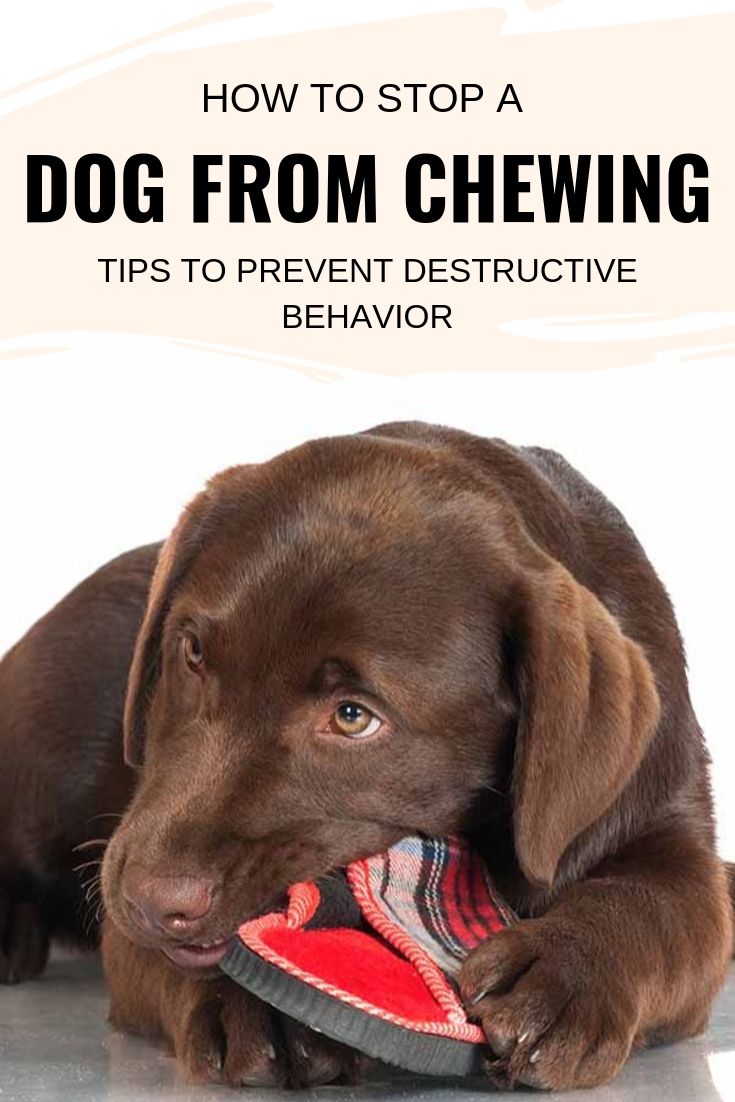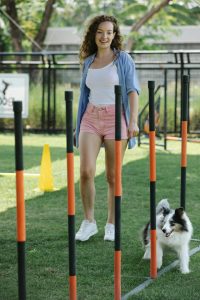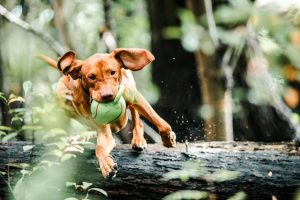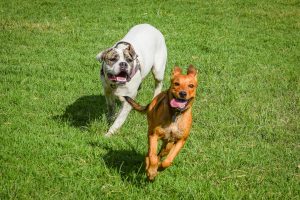Many owners often ask the question “why does my dog chew up on our things”. It is a simple question, with not so simple answers.
He has dozens of his own toys, and he is still chewing on your stuff. Now isn’t that annoying?
With that in mind, we want to help both puppies and people. Puppies that chew on other things risk being left alone, and it is the owner’s job to learn why their puppy is doing something, and prevent it.
Let’s talk about how to stop a dog from chewing.
This question is usually asked about young puppies. However, it can also be related to older dogs that give into destructive behavior.
Is chewing actually a destructive behavior? Only when he is chewing on the wrong thing. Let’s clear the air.
Why dogs chew on things?
We touched on this briefly. Owners want to know why are dogs chewing on their things when they have their own toys.
Well, in your dog’s mind, everything that is within reach is a fair game. Certain items are more appealing than others, like books, pillows, upholstery, and cell phones.
Plastic is a chewy delight, and if it is “perfumed” with our smell, it becomes even more appealing. You can say that it is irresistible to your dog.
For puppies that have yet to learn the ins and outs of the new home, nothing is off-limits. They explore the world by chewing and sniffing.
Think of them as babies that want to touch everything with their fingers. Puppies want to touch everything with their teeth and explore it.
At around six months of age, puppies change their teeth from baby teeth to adult teeth, and the chewing usually stops.
In adult dogs, insufficient exercise and mental stimulation can drive them to destructive behavior like chewing. Remember, a tired dog is a good dog.
Your dog has loads of energy, and he needs to burn it to meet his needs. If you do not provide enough exercise, he will look for ways to satisfy his “hunger”.
Usually, this is a problem in the winter months, when the weather is keeping you inside. Mental stimulation is another reason why dogs might be bored and turn to chewing. Their mind needs as much exercise as their body.
Understanding your dog is the key to preventing chewing and learning how to stop a dog from chewing. Last, but not least, you should rule out separation anxiety.
It is one of the most problematic and challenging conditions for dogs and their owners. There is no cure for separation anxiety. Simply put, some breeds and dogs do not like to be left alone.
You should try and provide enough stimulation for your dog when you are not home.
Best Ways to Stop Chewing
Now that you understand why your dog is chewing, let’s talk about how to stop a dog from chewing on things.
There are many techniques, methods, and tactics you can use. Try any of these, and see which one works for you.
Puppy-proof your house
Think of it as a baby-proof for your furry friend. One of the ways to change the chewing behavior is to manage the environment around your puppy.
What does this mean?
Well, for starters, it means putting your shoes in the closet, and pups in the crate when you are not actively supervising them.
Remember, even if your dog is now an adult one and has learned all of the good behavior tricks, you might want to keep the house dog-proof.
Provide chewing toys
The best way to solve the chewing is to redirect his attention towards another chewing option. And that is chewing toys. When your dog tries to chew on inappropriate items, give them toys.
Now, you might think, “What, am I rewarding their chewing”. Well, that is good logic. But it doesn’t work like that. The trick is to interrupt the behavior at the beginning, and redirect your dog to an appropriate chew toy.
When your dog is still learning the rules of the house, it is nice to have a chewing toy he loves at hand at all times.
Provide plenty of exercise
As we said previously, a tired dog is a good and well-mannered dog. Exercise is important for your dog’s health, but also his behavior and temperament.
When your dog gets plenty of exercise, he will not turn to destructive behavior.
You can provide exercise by walking, playing fetch, and more. Find out what your dog loves to play with, and provide that.
Some dogs are good enough with a quick walk. Others, however, need more running. Check exercise needs before getting a dog, and see if the breed you want fits your lifestyle and free time.
Supervision is vital
When you get a young puppy, it is crucial that you establish some house rules. But in order for your dog to follow these rules, you have to be consistent and patient with your training. And most importantly, you have to supervise your dog.
That might be hard if you have to go to work and leave the house empty. You can solve that by getting a crate and crate training your puppy. And in the house, you can keep your dog on a leash to monitor his movement.
One thing to note for crate training: choose a safe place. That should be dog-proof. Provide fresh water and safe toys.
Bad-tasting repellants and sprays
You can try to utilize and use bad-tasting repellants. There are many scents that your dog simply doesn’t like.
For example, dogs do not love the bitter apple spray. Or you can get some dog repellant at the local pet shop.
Just spray the area you do not want your dog wandering in with the spray. When something is unpleasant, your dog will not get close to it.
Check if your dog has separation anxiety
The most important part about how to stop a dog from chewing is to find out the source. In many cases, that is separation anxiety.
If you suspect your dog is suffering from separation anxiety, consult with a veterinarian. Usually, the best way to treat the condition is by providing toys and mental stimulation tasks for your dog while you are away.
Try wet washcloth for young puppies
Young puppies chew on things because they are teething. Their teeth are inflamed, hurt, and they want to scratch them with anything they can find to bite and chew.
You can help your dog by freezing a wet washcloth and give it to them for chewing. The cold cloth will soothe their gums and will help with the pain and irritation they are feeling.
Never chase your dog
One of the big mistakes dog owners make is chasing their puppy when they grab an object. When you chase your dog, they think of it as a game.
Being chased and running is fun. Instead of stopping their behavior, you are actually enforcing it by making them think it is a game.
Who doesn’t want to play? What you can do instead is call your dog and offer a treat in exchange for the item they grab.
Be careful with punishment
Last, but not least, we have to stress it that punishment rarely works. If you discover a chewed item several minutes after it has been destroyed, you are too late.
Punishment works only if you catch the dog in the act. And even then, you have to be gentle. Being too harsh, like hitting your dog can make matters worse.
Dogs respond to aggression with aggression. Be gentle, but firm and consistent in punishment. Sometimes, the best punishment is ignoring your puppy. You can read on other ways to punish your dog without hitting them.

